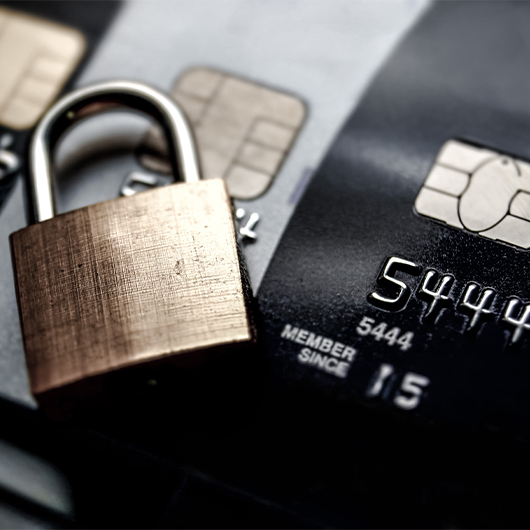Credit Card Basics and Best Practices
Credit Card Basics and Best Practices
When Americans go shopping, many opt to use a credit card to pay. According to the Federal Reserve Bank of Atlanta’s 2020 Survey of Consumer Payment Choice, 79% of American consumers held at least one credit card that year, and they used a credit card more often than cash — for 27% of their payments versus 21%, respectively. Only debit cards were more popular, being used for 33% of payments.What’s the appeal of credit cards? They can be more convenient than carrying cash, may offer rewards, can help the user build credit and provide a record of transactions. The No. 1 reason consumers like having a credit card, though, is as a cushion in case of emergencies, according to a recent Experian survey.
Following are some basics to explain how credit cards work, along with answers to some common questions and tips for managing credit cards responsibly.
How do credit cards work?
Credit cards provide you with the opportunity to make purchases or payments with a revolving line of credit. This means the credit card company determines a set amount of money you can borrow against, called the credit limit. You can charge up to that amount, and your monthly payments work to replenish your available credit. For example, if you have a $5,000 credit limit and you charge $1,000, you will have $4,000 left in available credit. If you pay that $1,000 off, your available credit goes back up to $5,000. Your available credit may change over time, at the discretion of the credit card company. They may increase your credit limit in response to your responsible credit management, or decrease your limit if they determine you have mismanaged your credit or stopped using your account.
Each month, the credit card issuer sends you a statement itemizing the transactions made on your card and specifying a minimum payment amount. You must pay the minimum payment amount to avoid potential penalties and fees. If you do not pay your balance in full, the balance you carry over from the previous month(s) is subject to interest charges, calculated by applying a percentage, known as the APR or annual percentage rate, to the outstanding balance. As long as you carry a balance rather than paying your card off in full, interest charges will continue to be added to the balance you owe.
How many credit cards should I have?
Every person’s credit needs are different, and so there is no ideal number of credit cards a person should have. Experian reports that Americans held 3.84 credit card accounts on average in the third quarter of 2020. This doesn’t mean that every person should carry three or four cards, however. The number of cards that is right for you should be based on careful consideration of your financial goals and needs, and how well you manage credit.
How does opening and using a credit card account affect my credit score?
Credit card management affects your credit score in several ways — notably:
- On-time payments to your credit card company are great for your credit score. They strengthen your payment history and demonstrate responsible debt management. Conversely, late or missed payments can damage your credit history and credit score.
- Opening a new credit card account adds to your total credit limit, which can help you lower your credit utilization ratio, the percentage of total revolving credit you’re using relative to your total credit limit. Your credit utilization ratio should be less than 30% — ideally 1% to 10% — to maintain a strong credit score.
- The longer you hold and responsibly manage your credit cards, the better it is for your credit score. That doesn’t mean you should hold onto a card with a high annual fee if you don’t use it anymore, but in general, leaving credit card accounts open, even if you use them only now and then, may benefit your credit score.
- Applying for a credit card results in a hard inquiry to your credit file, meaning the credit card company checks your credit history to see if you meet their qualifications. A hard inquiry can lower your credit score by a few points for a duration of a few months. (It remains on your credit report for two years.)
How do I find the right credit card?
It is smart to shop around before you commit to applying for a credit card, since each application represents a hard inquiry into your credit file. As you look for the credit card that’s right for you, be sure to compare annual fees, transaction fees, APR, rewards and any other available features.
If you are just beginning to establish credit or are looking to rebuild your credit, you may want to consider applying for a secured credit card, which uses a deposit account as collateral to guarantee credit card charges will be repaid. This type of card may be an ideal way to build your credit if you don’t currently qualify for an unsecured credit card.
Credit card tips: 7 ways to manage your credit cards wisely
These proven practices can help you get the most from your credit card account(s):
- Make your credit card payment on time every month: Paying your credit card bill by its due date each month helps you avoid not only late fees but also a penalty interest rate, a higher interest rate that may be applied to your account when you violate the card’s terms and conditions. On-time payments also boost your credit score. Make a note of when your payments are due and pay promptly.
- Respect your credit limit: Spending more than the credit limit set by your credit card issuer is also considered a violation of your card’s terms and conditions. If you do so, you may be subject to fees and trigger a penalty interest rate. Monitor your balance closely.
- Pay off as much as you can every month: Paying off your credit card balance in full each month is ideal, since there will be no outstanding balance to accumulate interest charges. If you can’t pay this much, make at least the minimum payment and preferably more. You will pay less interest and carry less debt.
- Maintain a low credit utilization ratio: As mentioned above, a credit utilization ratio of 1% to 10% is ideal; anything under 30% is good. Keep tabs on your total credit card balances to ensure you are keeping the amount of your revolving credit debt low.
- Avoid incurring unnecessary fees: In addition to fees for late payments and credit-limit violations, credit card companies charge fees for cash advances, balance transfers, foreign transactions and returned payments. In some cases, paying a fee may offer you a larger benefit — for example, a balance transfer may help you consolidate your debt at a lower interest rate. In other cases, fees may be avoidable. Check your credit card agreement so you understand which types of transactions or circumstances trigger fees.
- Pay attention to changes in your card’s terms and conditions: Credit card companies may change the terms and conditions of your account, related to interest rates, fees, billing, etc. Watch for notices of these changes so that you are always making informed decisions about using your card. If your card has a variable interest rate, or if you signed up for the card at an introductory rate effective only for a limited time, you are not likely to receive a notice that your rate is about to change. You can always check your monthly bill to see the current interest rates and fees.
- Protect your credit card account from fraud: Credit card fraud is the unauthorized use of your account for purchases or cash advances. You can protect your account by signing up for fraud alerts, texts that let you know of any suspicious activity on your account and ask whether you recognize the suspicious transaction (if not, the card can be blocked to protect your account from subsequent fraudulent activity). Set up card controls to place certain restrictions on transactions and turn your card on or off, according to your preference.
If you’re interested in learning about credit or the credit card options available through Dollar Bank, we’re here to help! Call or visit your local Dollar Bank office.
This article is for general information purposes only and is not intended to provide legal, tax, accounting or financial advice. Any reliance on the information herein is solely and exclusively at your own risk and you are urged to do your own independent research. To the extent information herein references an outside resource or Internet site, Dollar Bank is not responsible for information, products or services obtained from outside sources and Dollar Bank will not be liable for any damages that may result from your access to outside resources. As always, please consult your own counsel, accountant, or other advisor regarding your specific situation.
Posted: April 08, 2022




